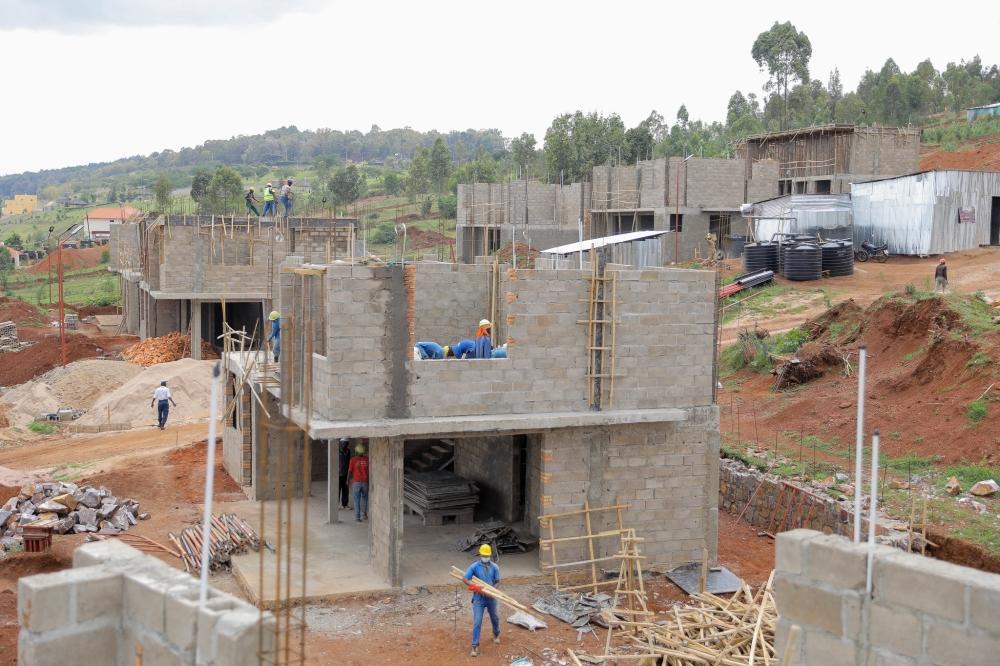Africa-Press – Rwanda. The Ministry of Infrastructure has initiated a two-month review of all conditional land use construction permits issued prior to the temporary suspension of the service, aiming to determine the future of projects previously approved under these provisions.
The review period will also examine current practices in permit issuance in order to establish clear guidelines for conditional land use construction permits.
A conditional land use permit is issued by a local authority, allowing a landowner or developer to use land for a purpose not automatically permitted under the land use master plan, but which may be allowed under certain conditions.
For example, small-scale commercial developments such as bars may be allowed in residential areas to provide convenience for daily shopping needs, according to the 2022 National Land Authority (NLA) land use zoning regulations.
Similarly, civic facilities such as schools, day-care centres, and religious facilities may be permitted in residential zones if they meet requirements such as parking and noise standards. Some facilities may also be conditionally allowed in zones dedicated to agricultural activities.
Such uses may be permitted conditionally following assessment and approval by the City of Kigali and District One-Stop Centres.
However, during a media briefing on August 6, infrastructure minister Jimmy Gasore said these flexible provisions were being misused, and that no new permits for conditional land use or overlays should be issued.
“Some residential areas were being turned into zones for bars and liquor stores, hotels, commercial houses, and other developments that divert from the master plan’s goals. This trend was accelerating rapidly, and that is why we temporarily suspended the issuance of such construction permits. The issuance of conditional land use and overlay permits will resume later, but will be conducted in a manner that supports orderly development and the objectives of the master plan,” he explained.
As a result, he said, the ministry is reviewing conditional construction permits that were issued before the temporary suspension, in order to decide what will ultimately happen to those already granted.
“Existing projects that have been granted such permits will be subject to review to ensure compliance with the law and the broader zoning regulations.”
When asked whether some of the permits under review might be revoked, he responded that the final decision, whether to revoke or approve continued use, will be taken in a way that does not violate the rights of those who were previously granted permits.
“We will carefully carry out the review to ensure a well-managed transition. We will assess each case individually and inform permit holders accordingly,” he added.
Permits for livestock sheds also under review
Gasore also noted that permits for livestock sheds are under review, as many of these structures are being used for purposes other than housing domestic animals such as cattle, sheep, goats, pigs, or poultry.
“Some people obtained permits for livestock structures or buildings, but later converted them into residential houses or schools,” he said.
The ministry of infrastructure stated that, in collaboration with the Rwanda Housing Authority, it has been monitoring the issuance of construction permits related to conditional land use and overlays.
The growing number of such permits, issued contrary to the exceptional nature originally intended by the regulations, has raised concerns about unregulated development and its long-term impact on land use and urban planning objectives.
To address these concerns, the Ministry is developing a comprehensive framework to ensure responsible issuance of conditional land use and overlay permits, in strict adherence to the law, and to establish clear guidelines for their use.
Understanding zoning and conditional building permits
Typically, the land use master plan is implemented through zoning regulations.
The Zoning Plan provides landowners, developers, and stakeholders with clarity on what can and cannot be developed on any given parcel of land in Kigali and other districts.
Every landowner should understand the three primary land use categories defined in zoning regulations: Permitted, Conditional, and Prohibited.
These categories guide what can or cannot be developed on a parcel of land, ensuring that urban growth occurs in a structured and sustainable manner.
In a Low-Density Residential Zone (R1), the development of single-family homes is permitted.
However, uses such as apartments, industrial activities, and major infrastructure are strictly prohibited.
Conditional land use permits in this zone may allow developments like semi-detached houses, restaurants, guest houses, small lodges and hotels (including ancillary uses), as well as public facilities (if designated), commercial retail outlets, and accessory residential units.
The R1A Residential Zone supports a slightly higher density of housing.
It allows for semi-detached houses, townhouses, multi-family homes, and low-rise developments.
Permitted developments include single-family, semi-detached, and multifamily houses, along with apartments, townhouses, row houses, and home-based businesses.
Similar to R1, industrial uses and major infrastructure are not allowed.
Conditional permits in R1A may authorise the development of restaurants, guest houses, lodgings, hotels, public facilities, commercial retail spaces, and accessory residential units.
The High-Density Residential Zone (R4) accommodates more intensive urban housing and integrates a mix of commercial, public, and eco-tourism facilities.
In this zone, permitted uses include high-density residential units, home-based businesses, and R2 house types, provided the plot is smaller than 750 square metres.
Prohibited developments in R4 include industrial uses and major infrastructure.
Conditional permits may be issued for projects such as restaurants, hotels (and ancillary services), guest houses, lodges, public facilities, commercial retail, offices, and micro-enterprises.
The C1 Zone promotes flexible mixed-use development and is aimed at increasing employment opportunities. Permitted uses in this zone include commercial and retail spaces, restaurants, recreational areas, offices (above ground floor), co-working spaces, residential units, and home-based businesses.
Projects that are not allowed include large-scale commercial complexes, industrial developments, and major infrastructure.
Conditional permits in the C1 Zone may support developments such as public facilities, transport terminals, hotels, wholesale and warehousing centres, garages, and petrol stations.
For More News And Analysis About Rwanda Follow Africa-Press






